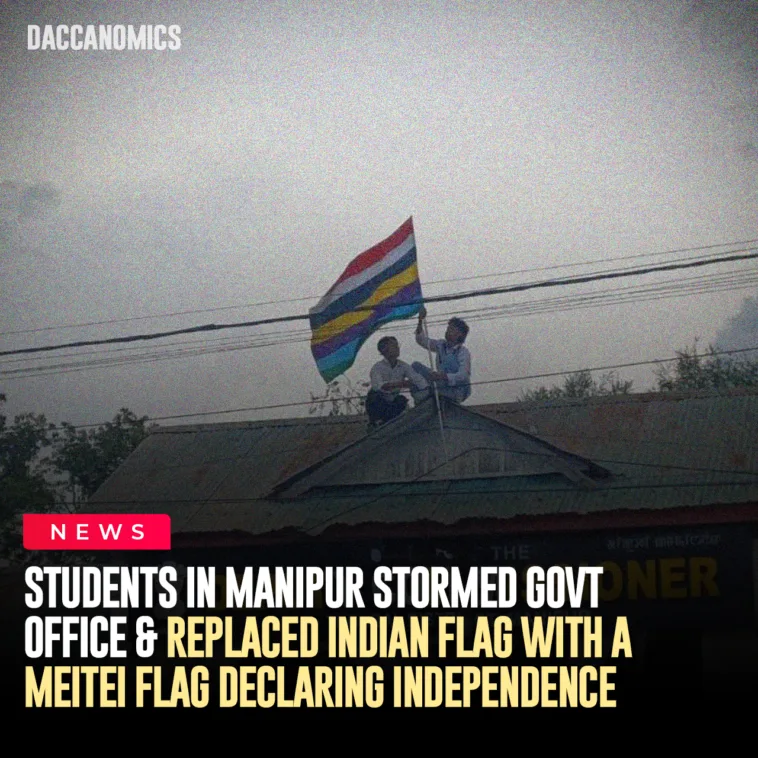A dramatic escalation unfolded in Manipur as a group of protesters in Thoubal district not only stormed the Raj Bhawan and the Deputy Commissioner’s office but declared independence, replacing the Indian national flag with the Meitei secessionist flag, the Salai Taret. The move, captured on video and now widely circulated online, has sent shockwaves across India, with many viewing this as an open challenge to the Indian state’s authority.
The protests, initially fueled by demands for changes in the state’s security management, have now taken on a much sharper edge. Students, many in uniform, marched through the streets of Imphal, chanting slogans such as “Long Live Manipur” and “Down with Central Rule,” signaling a shift towards separatist rhetoric. The replacement of the national flag with the secessionist emblem was not just a symbolic act but an outright declaration of defiance against the Indian government.
The protesters, emboldened by their numbers and the growing unrest, announced their intent to break away from India. They called for the creation of an independent Manipur, arguing that the Indian government had failed to protect the people of the state amid the continuing violence. Their demands also included the immediate withdrawal of paramilitary forces and the resignation of 50 MLAs, accusing the state’s political leadership of incompetence in managing the crisis.
Tensions have been building in Manipur, with a fresh wave of violence resulting in at least eight deaths and several injuries, including incidents involving drone and missile attacks. Protesters have made it clear that they no longer trust the Indian government’s ability to ensure their safety, with one student leader declaring, “We are done being ignored. We are done being sidelined. Manipur will no longer bow to New Delhi.”
In addition to storming government buildings, student protesters met with Chief Minister N. Biren Singh and Governor L. Acharya, issuing six key demands, including the removal of the Director General of Police and the Security Adviser. However, the conversation has now shifted from reforms within the Indian state to complete independence. The protesters demanded control of the Unified Command, a security body currently under the authority of the central government, and called for its leadership to be handed over to local authorities.
In districts like Kakching, thousands rallied, not just against recent killings by suspected Kuki militants but also in support of the growing separatist movement. Many demanded the abrogation of the Suspension of Operations (SoO) agreement, further fueling the call for an independent Manipur.
This latest development has plunged Manipur into unprecedented uncertainty. With a declaration of independence coming from within, and protests spreading across the state, the Indian government faces a formidable challenge.





